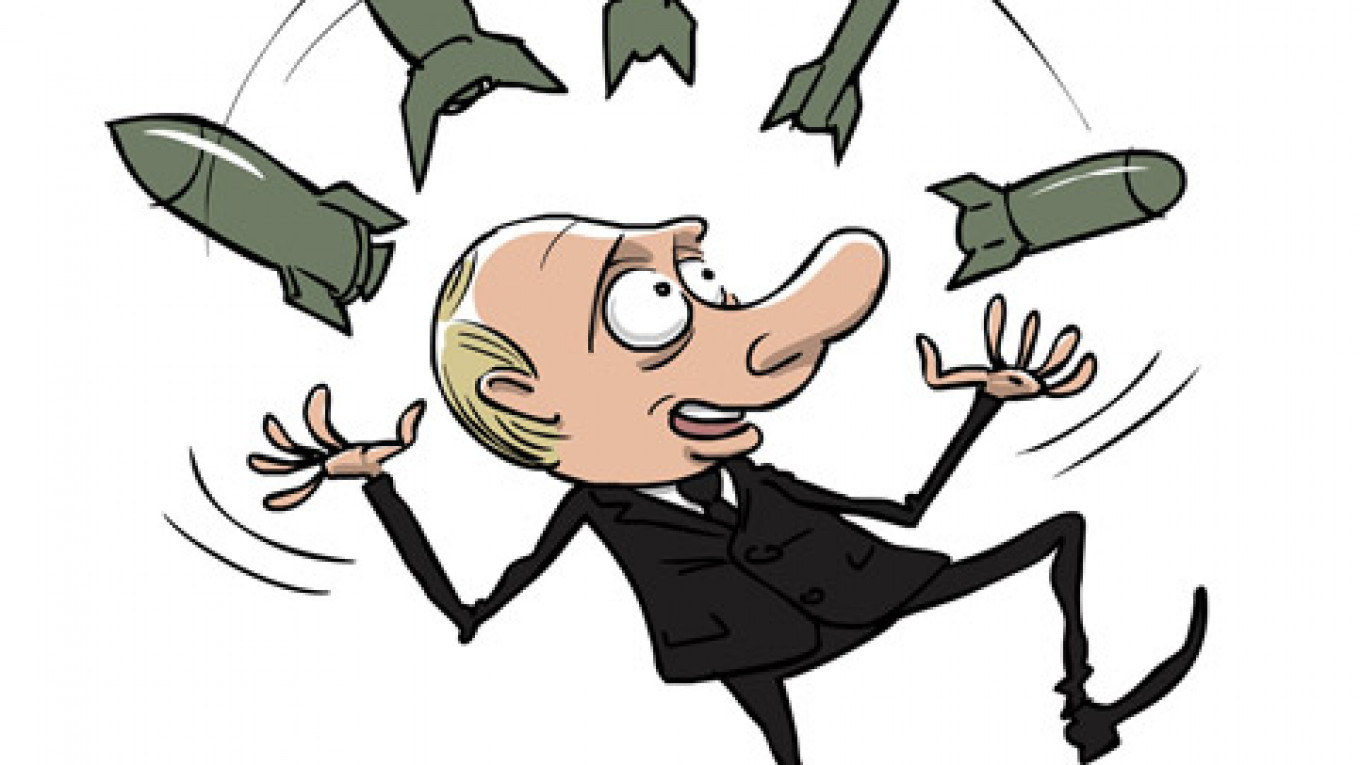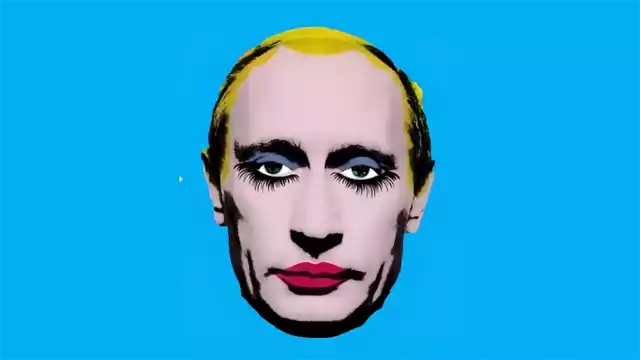The theory that history unfolds first as a tragedy and then repeats itself as a farce is not always true. Sometimes, history repeats its tragedy all over again, and with the same terrible consequences.
Thirty years ago, a Soviet fighter jet shot down a South Korean airliner that had strayed into Soviet airspace. U.S. intelligence presented incontrovertible evidence to then-President Ronald Reagan: a recording of the conversation between the pilots.
Reagan called the act a massacre. The world shuddered in horror. Prior to that, the international community considered Reagan's description of the Soviet Union as an "evil empire" a bit of a rhetorical exaggeration. After the deaths of hundreds of civilians, that assessment seemed all too accurate.
Nobody bothered listening to the head of the Russian General Staff who, jabbing his pointer at explanatory graphics, attempted to prove that Soviet intelligence had mistaken the Boeing for a U.S. spy plane that had cleverly hidden behind the exterior of a passenger plane. Overnight, the Soviet superpower turned into an international pariah.
Now the situation is repeating with extraordinary precision, right up to the press briefing with Russian military officials zealously putting forward two mutually exclusive theories. According to one, Ukrainian storm troopers shot down the airplane, and according to the other, Ukrainian anti-aircraft missiles are to blame. The Russian Foreign Ministry has demanded that the international community discuss the cacophony of unending and presumptuous “questions” put forward by the Defense Ministry, insisting that Moscow receive information on all air-launched and surface-to-air missiles in the Ukrainian Army’s possession.
But the world simply ignores those demands. The leading Western states have already reached their conclusions. U.S. White House spokesman Josh Earnest expressed their logic very clearly. “What we know is that the Malaysia Airlines jet was brought down by a missile that was fired from the ground,” he said. “It was fired from the ground in an area that was controlled by separatists and in an area where the Ukrainians themselves were not actually operating anti-aircraft weapons at that time. So that is why we have concluded that Vladimir Putin and the Russians are culpable in this tragedy.”
Russia has become a rogue state in the eyes of the West. The European Union and the United States see no reason to build a relationship with it and even feel they must restrain the country by all possible means, much like the Soviet Union before it. The U.S. chairman of the Joint Chiefs of Staff, Martin Dempsey, has said that NATO member states must take major steps to ensure their national security.
In practice, that probably means that the United States will have to be ready to quickly deploy troops to Europe to respond to potential crises. So, even if U.S. troops do not appear at Russia's doorstep, U.S. military bases for the storage and deployment of heavy weaponry will likely begin dotting the map. The U.S. administration is discussing the possibility of providing Kiev with intelligence on the exact location of the separatists' anti-aircraft installations and of supplying Ukraine with U.S. weapons.
In this way, we see a scenario unfolding on the territory of a European country that is strikingly similar to numerous guerilla wars of the second half of the last century in which the Soviet Union and the U.S. took turns supporting insurgents and propping up puppet governments. But at that time, the leaders in Washington and Moscow had enough prudence and intelligence to make sure those wars did not spread to Europe. General Dempsey, however, declares that the strategic landscape in Europe has already changed dramatically, and not only in Ukraine.
In short, the world is quickly spiraling into a new Cold War. The Soviet Union lost the last Cold War. What chances does Russia have in this one?
The Soviet Union had almost 5 million troops, but Russia, with its current demographic problems, can muster no more than 800,000. Soviet industry produced the full gamut of goods, whereas Russia is wholly dependent on imports in many areas.
The Soviet Union created the Warsaw Pact, a fairly powerful political and military alliance.
But as President Vladimir Putin recently admitted, "Russia is fortunately not a member of any alliance," thereby indicating the true value he places on the Collective Security Treaty Organization that only recently he had tried to present as a counterweight to NATO.
This list of comparisons could go on indefinitely, with each point only further underscoring that Russia cannot serve as a military counterweight to the United States.
However, that fact does not worry Russia's commander-in-chief in the least. President Putin opened a recent Security Council meeting on defending the sovereignty and territorial integrity of Russia with this sensational statement: "Obviously, there is no direct military threat to the sovereignty and territorial integrity of this country." According to Putin, "the strategic balance of powers in the world guarantees this." However, the factors listed above indicate that no such balance even exists: Militarily, Russia is far inferior to the West.
Russia's only strong point is its nuclear weapons, so Vladimir Putin relies primarily on those. But of course, according to former Defense Ministry Anatoly Serdyukov, the United States also has superiority in that area. Serdyukov explained that it would take until 2028 for Russia to increase its arsenal of nuclear delivery vehicles to the limits permitted by the New START Treaty.
However, unlike the last Cold War, the question of quantitative parity will have little fundamental importance this time. In the current situation, it is obvious that the West will base its policy on the possibility that even a single Russian warhead might penetrate its defenses and reach U.S. territory.
Until recently, the fact that Russia has the world's second-largest nuclear arsenal did not seriously influence international politics. That is because the world relied on the intelligence and sanity of Kremlin leaders, and believed that no circumstances could ever arise in which Putin would push the button.
Now the situation has changed. Russia is becoming a lonely pariah without alliances or military might, other than its nuclear weapons. And without any other easy means of achieving its objectives, I am afraid that the Kremlin will constantly try to prove it is just crazy enough to use its nuclear weapons. In short, Russia is turning into a second North Korea, only much, much larger, and far more dangerous.
Alexander Golts is deputy editor of the online newspaper Yezhednevny Zhurnal.
A Message from The Moscow Times:
Dear readers,
We are facing unprecedented challenges. Russia's Prosecutor General's Office has designated The Moscow Times as an "undesirable" organization, criminalizing our work and putting our staff at risk of prosecution. This follows our earlier unjust labeling as a "foreign agent."
These actions are direct attempts to silence independent journalism in Russia. The authorities claim our work "discredits the decisions of the Russian leadership." We see things differently: we strive to provide accurate, unbiased reporting on Russia.
We, the journalists of The Moscow Times, refuse to be silenced. But to continue our work, we need your help.
Your support, no matter how small, makes a world of difference. If you can, please support us monthly starting from just $2. It's quick to set up, and every contribution makes a significant impact.
By supporting The Moscow Times, you're defending open, independent journalism in the face of repression. Thank you for standing with us.
Remind me later.







